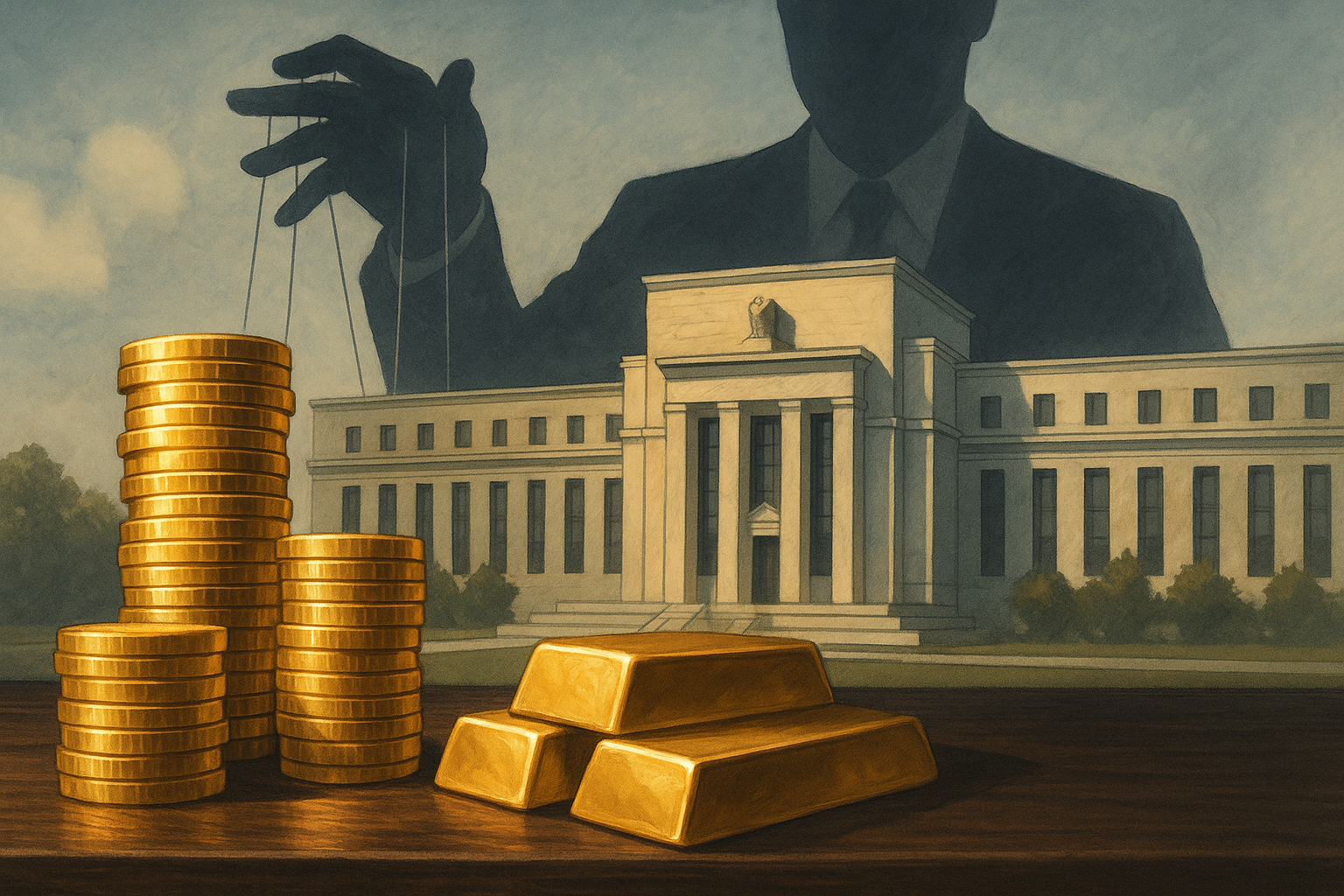In the tense intersection of monetary policy and raw political ambition, some investors are quietly reaching for their gold stashes. Not as some metaphorical hedge—we're talking actual, physical gold coins sitting heavy in palm or safe.
I've watched this dance before. When central bank independence starts looking wobbly, precious metals suddenly don't seem so... outdated.
The current situation borders on absurd. Here we have a former president—and current candidate—openly strong-arming the Federal Reserve to slash rates before an election. Not with subtle economic arguments, mind you, but with the subtlety of a sledgehammer to a champagne flute. And markets? They're actually pricing in the possibility this pressure campaign might work.
Let's back up a moment. The Fed's whole legitimacy rests on its supposed independence from political whims. That's the entire point. (Well, that and maintaining price stability, but I digress.)
The theater gets even weirder when you consider Trump's economic picks who favor tariffs potentially joining the Fed Board. It's like... what? Appointing someone who believes in setting fire to houses as your fire chief? The cognitive dissonance makes my head hurt.
Here's the thing about institutional credibility—it's binary in ways market fluctuations aren't. Once it's gone, it's gone.
I've covered monetary policy for years, and the lesson is always the same: credibility builds slowly, molecule by molecule, decision by independent decision. Paul Volcker didn't become a legend by checking which way the political winds were blowing. He earned his stripes by doing what he believed was economically necessary, even when it hurt.
Short-term market jitters? They pass. But fundamental distrust in the institutions underpinning our entire financial system? That's a different beast entirely.
Look, if there actually is a rate cut now—even a modest 25 basis points—in this politically charged environment, gold might start looking less like a fringe investment and more like America's future. Not because of some immediate economic collapse (though inflation remains stubbornly above target), but because markets fundamentally change when they become extensions of presidential whims rather than data-driven policy.
When a tweet can move markets more than economic fundamentals... well, that's when predictability goes out the window.
The irony? True independence might actually mean raising rates when Trump demands cuts, or cutting when he wants hikes. The moment Fed actions perfectly align with presidential demands is exactly when you should question whether you're witnessing independence or obedience.
I'm not advocating any particular rate position here—I'm advocating for decisions based on economic merit rather than political pressure. That's the whole ballgame with credibility. Once it's gone, the gold bugs don't just get a moment—they inherit the earth.
Now, if you'll excuse me, I should probably check on my own modest bullion position. Just in case.
